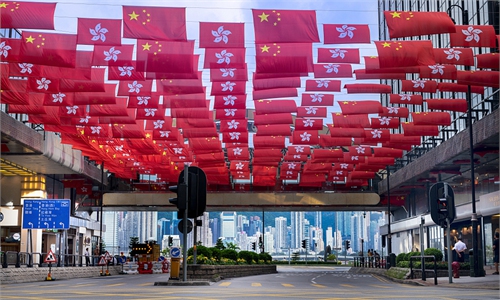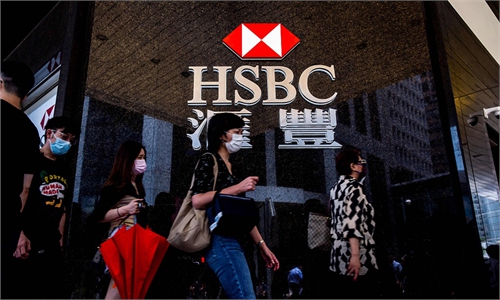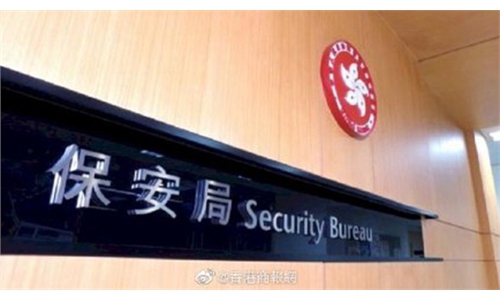
Movie Photo: VCG
The Legislative Council of the Hong Kong Special Administrative Region (HKSAR) passed a bill that would allow authorities to pull off movies from the screens that run counter to or harm national security. Experts saw the move as a necessary step to ensure the room for creativity in the film industry and maintain social order.
The bill said that national security factors must be taken into account when censoring a movie to be screened in local cinemas. It targets content deemed to "endorse, support, glorify, encourage and incite activities that might endanger national security."
The bill will empower Hong Kong's chief secretary to revoke permissions on previously approved films if they are found to be detrimental to national security.
Edward Yau Tang-wah, Secretary for Commerce and Economic Development in the SAR government, said that the aim of the bill is direct and simple, which is to improve movie management and prevent acts that may endanger national security.
The movie industry will remain mostly unaffected by the bill, as the vast majority of the films do not involve such concerns, Yau added, and by clearly specifying the legal requirements for the movies, it will help the industry better comply with rules and prevent stepping beyond the "red line" by mistake.
As for those who suggest that the amendment should be implemented on internet movies as well, Yau said it only applies to films screened in cinemas. Whether the bill would extend to the online community still needs careful study as it would go beyond the original intent and scope of the amendment. It also involves other considerations including policy, technology and law enforcement.
Some Western media, including mainstream ones such as Bloomberg and the New York Times, claimed the move was "the latest crackdown on freedom of expression in the Asian financial hub," citing a Washington-based commentator that "It is a treacherous climate for businesses having to make content decisions."
However, as experts have pointed out, many Western countries including the US also have similar censorship regulations, and the bill follows the international norm, a sign of the maturity of the film industry. "Movies advocating anti-Vietnam War ideas and values opposed to the US mainstream culture face severe scrutiny in the US," Li Xiaobing, a Hong Kong studies expert at Nankai University in Tianjin, told the Global Times on Wednesday.
"The movie industry in Hong Kong faces a complex political environment, as reflected in a number of movies that advocate black-clad riots such as Ten Years screened in 2015 and the so-called documentary Inside the Red Brick Wall earlier this year," Li noted.
These movies are usually full of bias and misinterpretations, and encourage or sympathize with radical secessionists, which can easily stoke hatred between the mainland and Hong Kong people, especially among the youth who are easily misled and instigated by such made-up tensions, Li added.
Analysts said it is necessary to set up rules in the industry that both ensure the room for creativity in the film industry and maintain social order.
The screening of the documentary Inside the Red Brick Wall covering black-clad riots at a campus in Hong Kong in 2019 was pulled from a local cinema in March hours ahead of its scheduled showing. Netizens condemned the film for distorting black and white and blatantly inciting violence, accusing the distributor of eating "blood-soaked buns" by taking advantage of the school's misfortune.



